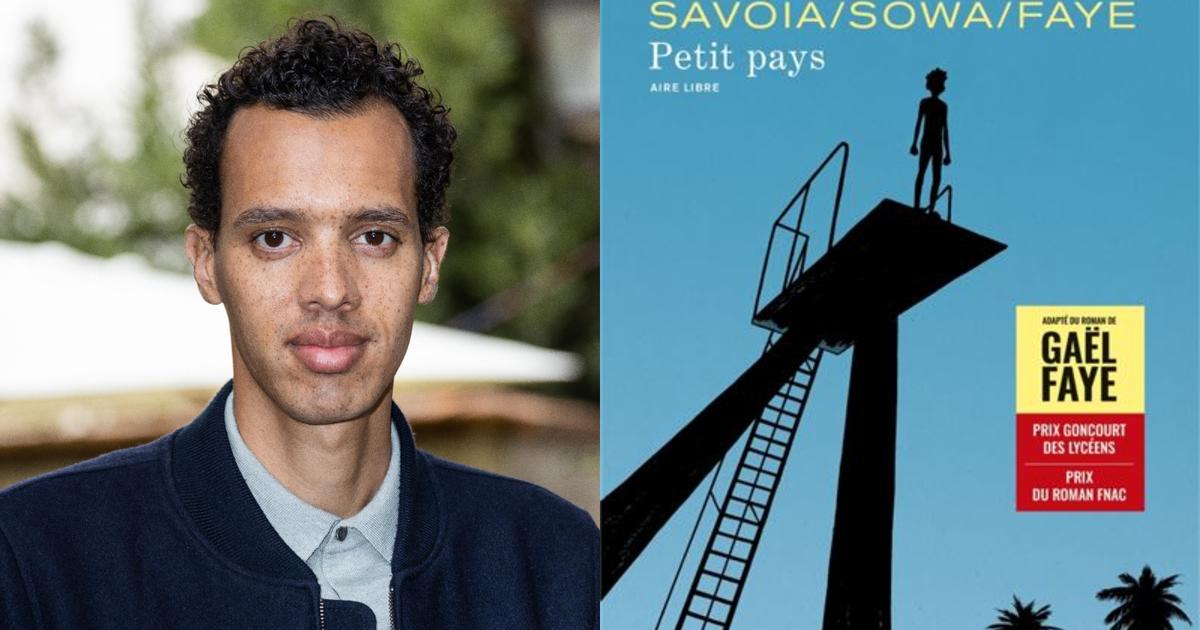In this summer of the year 2022, looking at the news is an exercise that causes anxiety for not a few: deaths from the heat wave, which are concentrated in the elderly and people with lower incomes;
more than 30 active fires throughout Spain that claim human lives and irreversible natural damage;
infrastructures that do not work properly due to the wear and tear of materials due to high temperatures, and in the background the energy crisis and its economic correlate as a time horizon.
The dystopian series and movies that we see on the platforms seem to have already stormed the news.
The climate crisis is not science fiction;
It is the future that the scientific community had been predicting, which has already arrived, even faster than we thought.
But even more important than the data:
However, precisely as the scientific consensus consolidates and becomes a general understanding of our time, spreading as heated and worried popular wisdom, more belligerent are the reactions of those deniers bent on waging a battle against the most obvious sensible perceptions: everything it is as it has always been, nothing is happening, everything is a huge distraction maneuver—distraction from what?—progressive.
What would lead someone, sweating and watching the country burn from all sides, harassed by the effects of the energy crisis and grumpy from not being able to sleep well because of the heat, to wage a fight to maintain that the climate crisis is a lie?
It is not a lack of data or empirical evidence that deniers take this position.
The deniers themselves yearn for landscapes that have been irreversibly destroyed, breathe worse air, eat worse food and pay higher prices for energy.
Also, surely, they see the future with more pessimism.
And then why do they deny it?
In reality, they deny the problem in order to reject the solution, to which they have no alternative.
There is surely a part of nihilistic resignation dressed in bravado, the one who beats himself in the chest for remaining impassive while everything around him is getting worse, as if he could save himself.
But there is a deeper reason.
They deny it because, if they accept it, they would then have to agree that the ecological transition is urgent and requires dedicating enormous economic resources and social mobilization to transform our way of living on Earth, of producing and consuming, of feeding and heating ourselves, of transporting or have fun, because we are running out of time and we cannot continue behaving as if the natural resources and the planet were infinite when they are showing frightening signs of exhaustion.
Moreover, in a second step they would have to recognize that we are not doing well, that left to its own inertia, this predatory model has not shown the possibility of self-reform and that the appeal to the responsible behavior of each individual —or each company— considered in isolation it cannot produce change at the scale, intensity and speed that we need.
That, therefore, we have to recover our ability to anticipate what is coming, building the political and social tools to make decisions as societies and not just as individuals, deciding which things are a priority and which are not, to what we dedicate greater efforts and investment of resources and what less.
What comes back is the idea of planning.
The pandemic forced us to take measures that established a collective good – health – above some individual desires.
Also, in the hardest moments, it forced us to prioritize the production of some goods and services over others.
It is quite possible that this was only the rehearsal for the transformations that are to come.
Our societies suddenly revealed themselves to be very fragile and we had to rescue the idea that there is a common good that is more than the sum of individual desires, that this is interpreted and established by the procedures that popular sovereignty specifies and that this requires state and community institutions with the strength to be able to safeguard or carry it out.
it forced us to prioritize the production of some goods and services over others.
It is quite possible that this was only the rehearsal for the transformations that are to come.
Our societies suddenly revealed themselves to be very fragile and we had to rescue the idea that there is a common good that is more than the sum of individual desires, that this is interpreted and established by the procedures that popular sovereignty specifies and that this requires state and community institutions with the strength to be able to safeguard or carry it out.
it forced us to prioritize the production of some goods and services over others.
It is quite possible that this was only the rehearsal for the transformations that are to come.
Our societies suddenly revealed themselves to be very fragile and we had to rescue the idea that there is a common good that is more than the sum of individual desires, that this is interpreted and established by the procedures that popular sovereignty specifies and that this requires state and community institutions with the strength to be able to safeguard or carry it out.
It is not simply about the “return of the State” because, strictly speaking, it never left, either as a gendarme, as the creator of another legal framework for deregulation and wage devaluation, or as an insurer of last resort.
It is about the return of planning to govern the future, democratically setting collective goals, curbing oligarchic powers, coordinating public-private efforts and mobilizing the necessary resources so that the ecological transition is governed by us with democratic and ecological planning instead of that it is governed by fear, the war for increasingly scarce resources and the growing inequality and violence between those who suffer and those who can afford increasingly expensive shelters.
Neoliberalism has nothing to say about the two most important threats that humanity has suffered in recent times: covid and the climate crisis.
It simply has no answers, because it is an obsolete paradigm, just a zombie run forward.
Thus, it is not surprising that part of the fury of his supporters has been directed… against the very existence of those challenges.
Lately, there has been a certain controversy within some lefts about whether ecology or feminism would be "cultural" struggles that would have distanced us from "material" claims and - it follows - therefore majority.
This controversy is extremely weak in theoretical terms and is based on a mechanical and clumsy division between structure and infrastructure that was never part of the gaze of the theorists who invoke themselves as saints.
It is difficult to maintain that there are material dimensions separate from the symbolic ones, but if this were the case, certainly the struggles for land, time, daily life or the body itself should count first in the list of “materials”.
The reactionaries, on the other hand,
they seem to have a better sense of the interrelationship between cultural and material victories and that is why they wage this ideological battle furiously and head-on.
If they refuse to concede the obvious climate crisis, it is because they fear, rightly so, that behind the growing green consciousness there may well come that of the urgent need for an ecological transition that can only be carried out with dense communities and strong States subject to popular sovereignty.
And here we come to the central question: deniers are, first of all, deniers of the transition and democratic planning —of a strong democracy, ultimately—, and if for this they must also be deniers of the evidence of the climate crisis, since will still be against all evidence.
rightly so, that behind the growing green awareness may well come that of the urgent need for an ecological transition that can only be carried out with dense communities and strong States and subject to popular sovereignty.
And here we come to the central question: deniers are, first of all, deniers of the transition and democratic planning —of a strong democracy, ultimately—, and if for this they must also be deniers of the evidence of the climate crisis, since will still be against all evidence.
rightly so, that behind the growing green awareness may well come that of the urgent need for an ecological transition that can only be carried out with dense communities and strong States and subject to popular sovereignty.
And here we come to the central question: deniers are, first of all, deniers of the transition and democratic planning —of a strong democracy, ultimately—, and if for this they must also be deniers of the evidence of the climate crisis, since will still be against all evidence.
The great transformations that require popular support are never, however, the result of fear or catastrophic awareness, which are usually paralyzing.
They are the result of confidence in one's own strength and hope for a better future.
The ecological transition is inevitable;
the question is whether we will govern it or it will be as the dystopian movies advertise.
But it will only become politically possible if, in addition to being scientifically necessary, it is socially desirable: it is the lever to reorganize life and make it better, slower, closer, fairer, happier.
That cultural war is not going to be waged by data, nor technological advances, nor by the advertising campaigns of large companies putting on green logos.
It is the task —and the opportunity— of those of us who do not want to close our eyes or run scared in a flight to nowhere: To make each step in the transition an example that gives certainty and a horizon of a possible good life, because the battle is Today if there can be a future that is worth taking care of the Earth and our neighbor or if everything is to give ourselves to the suicide “every man for himself”.
Because a frightened and disintegrated majority is not a majority, so we have the cultural task of articulating, from the majorities concerned about the end of the world and the end of the month, a new moral and political majority, a popular will for a ecological transition with social justice.
And to do it fast.
because the battle is today if there can be a future that is worth taking care of the Earth and our neighbor or if everything is to give ourselves to the suicidal "every man for himself".
Because a frightened and disintegrated majority is not a majority, so we have the cultural task of articulating, from the majorities concerned about the end of the world and the end of the month, a new moral and political majority, a popular will for a ecological transition with social justice.
And to do it fast.
because the battle is today if there can be a future that is worth taking care of the Earth and our neighbor or if everything is to give ourselves to the suicidal "every man for himself".
Because a frightened and disintegrated majority is not a majority, so we have the cultural task of articulating, from the majorities concerned about the end of the world and the end of the month, a new moral and political majority, a popular will for a ecological transition with social justice.
And to do it fast.
a new moral and political majority, a popular will for an ecological transition with social justice.
And to do it fast.
a new moral and political majority, a popular will for an ecological transition with social justice.
And to do it fast.
Íñigo Errejón
is the spokesperson for Más País in the Congress of Deputies.
50% off
Subscribe to continue reading
read without limits
Keep reading
I'm already a subscriber

/cloudfront-eu-central-1.images.arcpublishing.com/prisa/GKMZBT25SBDZBOGY7M4L3EPKOY.jpg)





/cloudfront-eu-central-1.images.arcpublishing.com/prisa/LFBFEDS4JM3L5A6GILDYIRNLEI.jpg)







